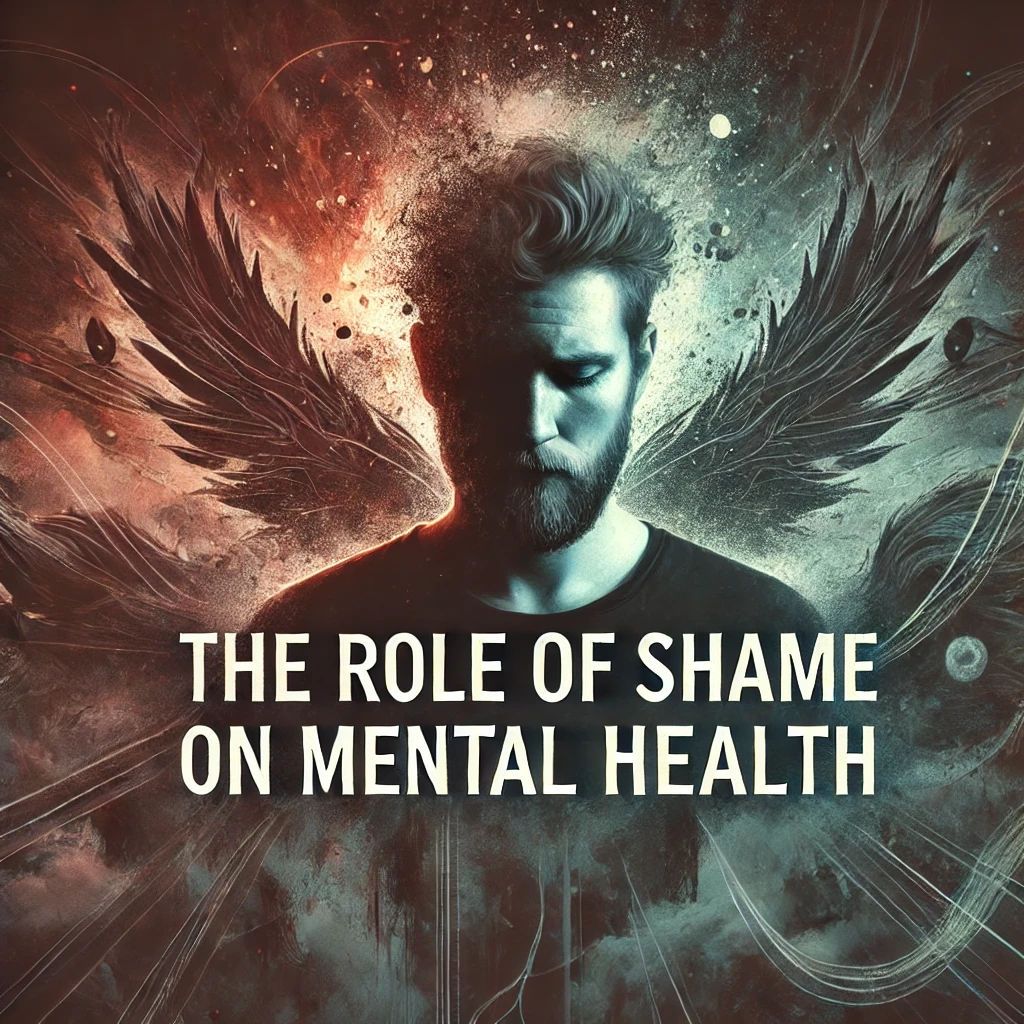Are you looking to convert shame into strength? then your search ends here. Mental health is a fundamental component of the way we think, feel, and behave. Shame is one of the most crippling and destructive emotions to mental health. It is a powerful emotion that can keep us emotionally frozen, hinder our self-expression, and cause immense damage to all areas of our lives. This blog will touch on the importance of shame in our lives, and how learning to experience this emotion can be a powerful way for 20-somethings to build mental strength and growth.
The topic I want to get into today is shame what it can do to your mental health and some practical ways of getting past that! When people hold their shame, they liberate it and turn this astonishing weakness into resilience. The transformation from shame to strength is not just possible, it gives you the tools for a much happier and healthier existence.
Understanding Shame

Shame is an unkeen emotion that typically results from a state of mind we have fallen short or failed in some way, making us feel inadequate and defective. Unlike guilt, which is related to a certain activity attacks who we are at the very core and convinces us that there is something inherently bad about ourselves. Shame is a highly individual experience influenced by things such as how we were raised, the societal expectations and norms of our adulthood, or even personal failures that fall somewhere in between.
Shame and mental health go hand-in-hand, such is the deep-seated psychological/ emotional impact of shame on our brains—feelings of inadequacy, low confidence, and in even more extreme cases; depression or anxiety. Identifying why we feel shamed & realizing when it hits us, is the start of turning your shame into power. As we educate ourselves about the impact of shame on our thoughts and behaviors, it can begin to challenge those negative patterns that were established in childhood.
How Shame Impacts Mental Health

Shame is pervasive and can seep into every corner of our lives, showing up as self-doubt, perfectionism, or ways we numb ourselves. It creates a hyperawareness of our insecurities and allows us to exist in this constant state of criticism and anticipation of judgment. This mind frame likely contributes to why some people may have a hard time growing as an individuals, with others (or just themselves), and probably how many of us still struggle to manage our mental health.
We know that shame and mental health problems are closely related. Those with chronic shame are also more likely to develop depression, anxiety, and low self-worth. If we let shame-based thinking govern our thoughts and actions, the cycle of negativity can have us always feeling unworthy or ill-equipped to accomplish much at all. Identifying this cycle is vital to how we may start turning shame into power. It is only when we work to heal our shame that we can ever hope of breaking its hold over us and experiencing some semblance of mental health.
How to Get Rid of Shameful Thoughts
Self-awareness and Appreciation
The process of transforming shame into strength starts with self-awareness and acknowledgment. It is important to find the triggers of shame and see how they color our thoughts and behavior. Noticing times we feel shame helps us see our patterns and how individuals are trapped by thought. Self-awareness is the first step when it comes to challenging and changing your shame-based beliefs.
Another important part is to start identifying our negative self-talk and internalized beliefs. Our inner critic maintains our shame by reminding us that we are not good enough or unworthy. It’s at this point, by recognizing the negative self-talk we engage in, that we can start to turn these around into more kind and realistic ideas. This is the key to transforming shame into strength – this awareness and identification process.
Developing Self-Compassion
Practicing self-compassion is one of the most potent ways to tackle shame-based thinking. Self-kindness and understanding – as opposed to self-judgment – are your friends here; they help reduce the effects of shame. How mindfulness and self-affirmations can develop an attitude of compassion towards the self. As we learn to treat ourselves with the same kindness as a friend, gradually weaken and deflate that ruthless inner critique behind shame.
Self-compassion is about recognizing our imperfections and acknowledging the humanity in those shortcomings. We all screw up, we all fail. This process of accepting, being kind to ourselves, and sitting with our emotions allows us to change shame into power. These reminders help us to see our problems differently – as chances for advancement instead of reflections of the values we carry.
Challenging Negative Beliefs
One of the most crucial tactics in turning shame into strength is to confront negative beliefs that may be playing over and over like a broken record inside your head. These include a combination of cognitive-behavioral methods to change the way you think about things and help break free from negative thought patterns, such as identifying where you are thinking in an extreme manner (eg. black/white) and adapting these over time into more balanced thoughts – even positive ideas! As we challenge and contest these internal shame messages, we are able to view ourselves with a greater sense of reality which in time leads to increased levels of self-compassion.
A good way to start decoding these beliefs is by collecting evidence of how they are lies, essentially. This is about ourselves acknowledging our strengths, accomplishments, and all the things we do right, etc. When we allow ourselves to be self-compassionate in each of these areas, that automatically works against shame-based thinking. This battle against dark beliefs is crucial in defeating shame and building up the self into one that can face whatever comes.
Building a Support System
In the journey to convert shame into strength, an amazing support system makes all of the difference. The encouragement and validation we require to move past shame can be found by associating with others who are supportive and understanding. We can turn to friends, family, and support groups where we tell our stories and get empathy.
It can also be helpful to ask for professional help in the form of therapy or counseling. Many professional therapists are experts at giving you tools to overcome shame and cultivate self-esteem. This can enable us to better understand our feelings and think in more constructive ways. Developing a support system, at home and in the workplace is crucial to moving from shame to strength.
Practicing Vulnerability
Being vulnerable is one of the best weapons that we have in turning our shame into power and strength. Expressing our experience and emotions through that which we trust allows breakthroughs of healing and empowerment. Vulnerability is how we relate as human beings, it opens the door for empathy and compassion. It lessens the loneliness that shame creates and creates connection, and webhook from a place of community and support.
Through sharing their stories of struggles and imperfections with others, we can see that vulnerability is part of the human experience. This will free you from shame to some extent and help live a more authentic life. Vulnerability is not a sign of weakness, it’s an act of courage that turns shame into strength.
Setting Boundaries
Setting boundaries either way is a key tactic to safeguarding our mental health and not having yet another reason for feeling ashamed. Saying no and putting oneself first automatically triggers a feeling of empowerment, control of oneself consecutively, and self-respect. Boundaries also enable us to restore healthy dynamics in our relationships and prevent situations that may activate shame.
Mature boundaries are around acknowledging our limitations and enforcing them with the people in our lives. That takes a level of self-awareness and assertiveness that is fundamental in the process of changing shame into power. We can carve out a space of trust and help guide each other in real-time – which allows our humanity to meet itself.
Turning Your Guilt Into Power
This way you turn your shame into strength with self-improvement and resilience. We have the potential to flip our stories from shame into motivation. This transition enables us to become more robust, resilient beings poised to tackle whatever life presents with presence and poise.
Listening to success stories can also act as a catalyst for movement from Shame to full Strength. These are emerging stories about adversity and strength, growth & healing. When we begin to view shame as an avenue for transformation, we empower ourselves to live more satisfying and mentally healthy lives.
Conclusion
To me, one of the biggest issues in mental health as a whole comes when shame-based thinking is not only unaddressed but also glorified. Shame, therefore by understanding the effect of shame on our lives and how to work with it effectively can liberate us from bondage into strength. The journey through this all requires awareness, self-compassion, and changing these beliefs we have about ourselves to other people and life in general by building a support system that is supposed to show us you are not alone – everyone feels shameful or unloved like at some point.. but if boundaries.
Recommendations to use these methods in life can make a big difference as they help with the level of mental health and development. Turning shame into strength is empowering, leading one to become a more resilient and fulfilled self. But approaching this journey from a place of






















